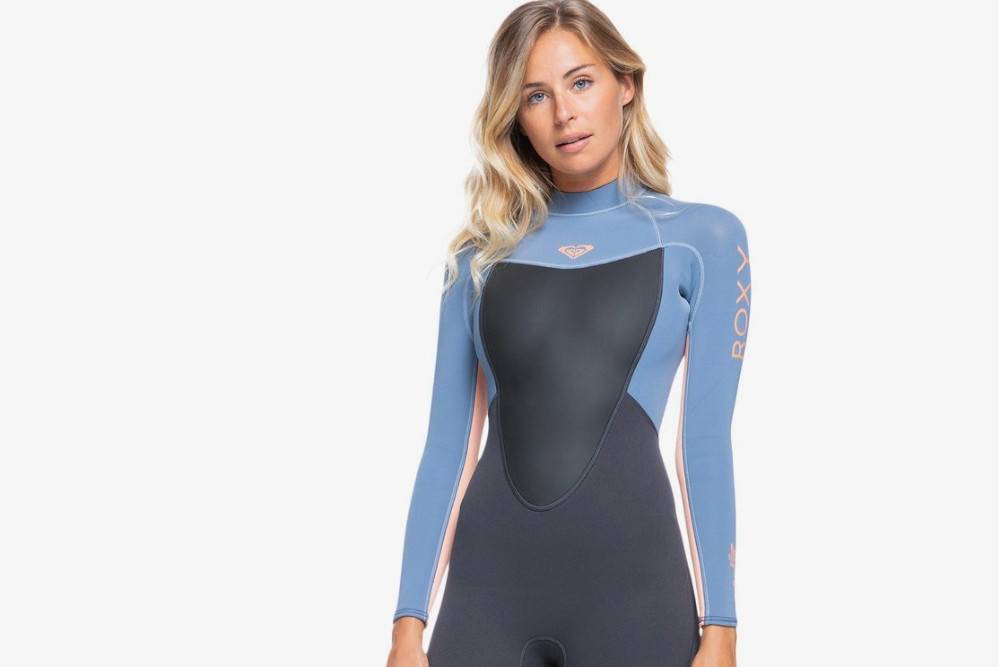
Roxy is an American fashion retailer founded in 1990 in Huntington Beach, California, by surf-inspired apparel brand Quiksilver. The multinational clothing-retail company creates surf, snowboard, and fitness apparel for women and girls.
Roxy makes clothing, accessories, shoes, and swimwear. One of the world's largest surfwear brands in the world, Boardriders, owns Roxy along with other brands like Quiksilver, Billabong, DC Shoes, RVCA, Element, and VonZipper.
Boardriders operates more than 570 retail stores and has 7,500 employees in stores, factories, logistics, brands, and subsidiaries across 56 countries where it does business.
Roxy is helping create a better tomorrow and more sustainable practices and products. It focuses on style, quality, innovation, and responsibility to positively impact lives and protect the planet.
Panaprium is independent and reader supported. If you buy something through our link, we may earn a commission. If you can, please support us on a monthly basis. It takes less than a minute to set up, and you will be making a big impact every single month. Thank you!
Sustainability Rating: 5/10
Rating FAQ
Category: Clothing, accessories, shoes, bags
For: Women, girls
Type: Basics, denim, dresses, knitwear, activewear, loungewear, swimwear, outerwear, sneakers, boots, sandals
Style: Casual
Quality: Medium
Prices: $$
Sizes: XS-XL, 2-12 (US), 4-14 (UK), 34-42 (EU), 6-16 (AU)
Fabrics: Cotton, linen, hemp, jute, lyocell, modal, viscose, acetate, polyester, nylon, spandex, polyethylene, polypropylene, acrylic, neoprene, polyurethane, rubber, leather, wool
100% Organic: No
100% Vegan: No
Ethical & Fair: No
Recycling: Yes
Producing countries: not transparent enough
Certifications: GOTS, OCS, GRS, RCS, FSC, Oeko-tex, Bluesign
Sustainability Practices
Roxy takes wide-ranging measures to protect biodiversity, reduce its consumption of water, energy, and other resources, avoid waste, and combat climate change.
It wants to be better and more efficient by looking at every aspect of its value chain to ensure the healthy functioning of our planet. However, the majority of its business remains detrimental to the environment.
Roxy uses a medium proportion of organic materials such as organic cotton and hemp or recycled materials such as recycled cotton, recycled polyester, and regenerated nylon.
It also uses are natural fabrics without relevant certifications, such as regular cotton or linen, or synthetic petroleum-based fibers such as polyester, nylon, acrylic, and more.
Roxy also uses a small proportion of semi-synthetic fibers or regenerated cellulosic fabrics such as Tencel lyocell, modal, acetate, and viscose. Tencel is an eco-friendly fiber made with wood pulp from certified sustainable forests.
Roxy doesn't publish a list of all its manufacturers and processing facilities on its corporate website. It doesn't disclose how it chooses its network of suppliers.
The 2022 Fashion Transparency Index gave Roxy a score of only 7% based on how much the group discloses about its social and environmental policies, practices, and impacts.
Roxy manufactures its clothes in many East Asian countries, where human rights and labor law violations happen every day.
The American clothing retailer doesn't show any labor certification standard that would ensure good working conditions, decent living wages, health, safety, and other crucial rights for workers in its supply chain.
Roxy has a code of conduct that applies to all its suppliers and subcontractors and a global ethical program titled "BEST" (Boardriders Ethical Standards of Trade).
Roxy assesses compliance with its Code of Conduct by informal visits or third-party audits with or without notice. It stands against abusive, exploitative, illegal, or unsafe conditions in the workplace and utilizes BEST as a guide to manage labor and safety issues in its supply chain.
Roxy doesn't use exotic animal skin, hair, fur, or angora. But it uses leather and wool to manufacture many of its clothing pieces.
These animal-derived materials are cruel and unethical. They also harm the environment by producing greenhouse gases and waste. More sustainable alternatives exist.
Sustainability Goals
By the end of 2023, 100% of its swimwear and wetsuit ranges will be made with certified recycled, organic, or other responsibly sourced materials.
By the end of 2025, 50% of its apparel and accessories will be made with certified recycled, organic, regenerative, or other responsibly sourced materials.
By the end of 2023, 100% of polybags used to protect its products will be made from 100% consumer waste.
Buy Here
Discover Roxy's sustainable collections at Roxy.com.
Reviews And Experiences With Roxy
Have you had (good) experiences with shopping at or the products of Roxy? Then leave us your rating below.
What We're Up Against
Multinational corporations overproducing cheap products in the poorest countries.
Huge factories with sweatshop-like conditions underpaying workers.
Media conglomerates promoting unethical, unsustainable products.
Bad actors encouraging overconsumption through oblivious behavior.
- - - -
Thankfully, we've got our supporters, including you.
Panaprium is funded by readers like you who want to join us in our mission to make the world entirely sustainable.
If you can, please support us on a monthly basis. It takes less than a minute to set up, and you will be making a big impact every single month. Thank you.

















0 comments